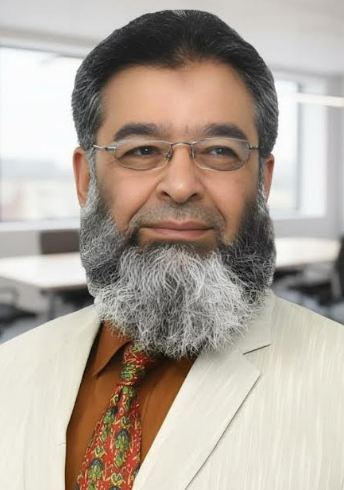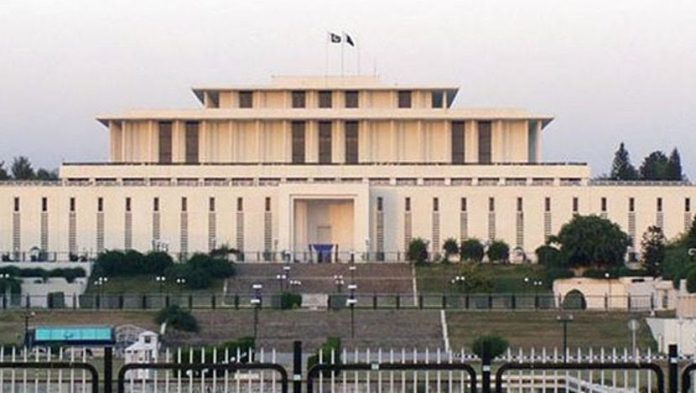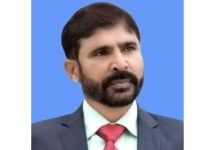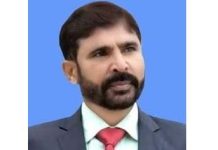
by Muhammad Mohsin Iqbal
The concept of presidential immunity has long occupied an important place in constitutional discussions across the world. Though its contours differ from country to country, its underlying rationale is similar; the head of state must be able to perform duties without constant legal intimidation, yet no office-bearer should be forever insulated from accountability. This delicate balance between authority and responsibility lies at the heart of modern constitutionalism. At the moral plane, the idea resonates with the Qur’anic principle that all human beings, regardless of rank, remain answerable before God: “And every soul will be paid in full what it has done, and He knows best what they do.” (Qur’an 39:70). The Prophet Muhammad (peace be upon him) also warned against selective accountability, declaring, “By Allah, if Fatimah, the daughter of Muhammad, were to steal, I would cut off her hand.” Such teachings remind nations that while administrative immunity may be necessary for governance, it must never evolve into moral or legal impunity.
Presidential immunity generally manifests in two forms. The first, often called absolute immunity, protects a sitting president from criminal prosecution or civil litigation while in office. It is justified on the grounds that governance must not be paralysed by politically motivated charges. The second form is functional immunity, which shields a president from liability for actions undertaken in the course of official duties, even after leaving office. This protection exists to ensure that presidents can make difficult and sometimes unpopular decisions without fear of future retribution. Yet the global trend shows that nations increasingly refuse to place their leaders permanently beyond the reach of the law.
Some countries provide strong, almost absolute protection to their presidents. In the United States, a long-standing legal interpretation holds that a sitting president cannot be criminally tried. While the Supreme Court has affirmed absolute immunity for official acts, it has clarified that no immunity applies to private conduct. In Russia, the president cannot be arrested, searched, or prosecuted for either criminal or administrative offences while in office, and certain protections even extend beyond the conclusion of their term. Turkey offers similar protections, requiring parliamentary approval to lift immunity for acts prior to assuming office. Kenya too provides wide-ranging immunity that prevents any criminal or civil action against the president during their tenure.
Other states adopt a more qualified approach, allowing constitutional mechanisms to lift immunity. India’s president is immune from criminal prosecution and court summons, yet personal civil actions may proceed with notice, and impeachment remains possible for constitutional violations. Italy’s president may be tried only for high treason or grave constitutional breaches. Germany limits immunity strictly to official acts, and violations of federal law can lead to impeachment by the Constitutional Court. South Africa provides functional immunity but allows removal from office through parliamentary processes. Sri Lanka grants immunity but permits the Supreme Court to hear fundamental rights petitions even against the sitting president.
In several countries, immunity is linked strictly to official conduct. Brazil allows prosecution for common criminal offences with legislative approval, while Argentina restricts immunity largely to the impeachment process, after which the president may stand trial before the Supreme Court. In all these cases, the underlying principle is clear; the president is not above the law but protected only to the extent necessary to preserve the functioning of the state.
An important dimension in the global legal order is the jurisdiction of the International Criminal Court. The Rome Statute explicitly states that immunities under national or international law do not bar the prosecution of sitting or former heads of state for genocide, war crimes, crimes against humanity, or the crime of aggression. This universal principle reinforces the idea that certain crimes transcend borders and that human dignity, once violated, demands accountability irrespective of rank or office. It echoes the Qur’anic teaching: “O you who believe, stand firmly for justice, as witnesses for Allah, even if it be against yourselves or your parents and relatives.” (Qur’an 4:135).
Pakistan’s constitutional framework has historically offered the president immunity from criminal proceedings, similar to other states with strong executive protections. However, the recently passed 27th Constitutional Amendment has reaffirmed and clarified the extent of this immunity. By explicitly safeguarding the president from criminal prosecution while in office and ensuring that official acts cannot be brought under judicial scrutiny, Parliament sought to prevent political pressures from disrupting the continuity of the state.
At the same time, critics argue that democracies must avoid creating sanctuaries of unrestrained authority. They caution that immunity should facilitate governance, not shield misconduct. The amendment has therefore revived national debate on how best to harmonise institutional stability with public accountability.
Yet constitutional immunity, no matter how broadly defined, must coexist with the moral expectation that leaders embody integrity. The Prophet (peace be upon him) said, “Each of you is a shepherd and each of you is responsible for his flock.” Immunity may protect the office-holder from prosecution, but it does not absolve the leader from responsibility before the nation or before God. In societies shaped by Islamic values, this moral dimension remains central; authority is a trust, not a privilege.
Across the world, constitutional systems continue to refine the boundaries of presidential immunity. While the forms differ, the principle remains constant; governance requires dignity, but justice demands accountability. The challenge for nations, including Pakistan, is to maintain this equilibrium so that no office is weakened by political vendettas, and no individual stands beyond the reach of law or ethics. In this balance lies the strength of the state and the trust of the people.

















